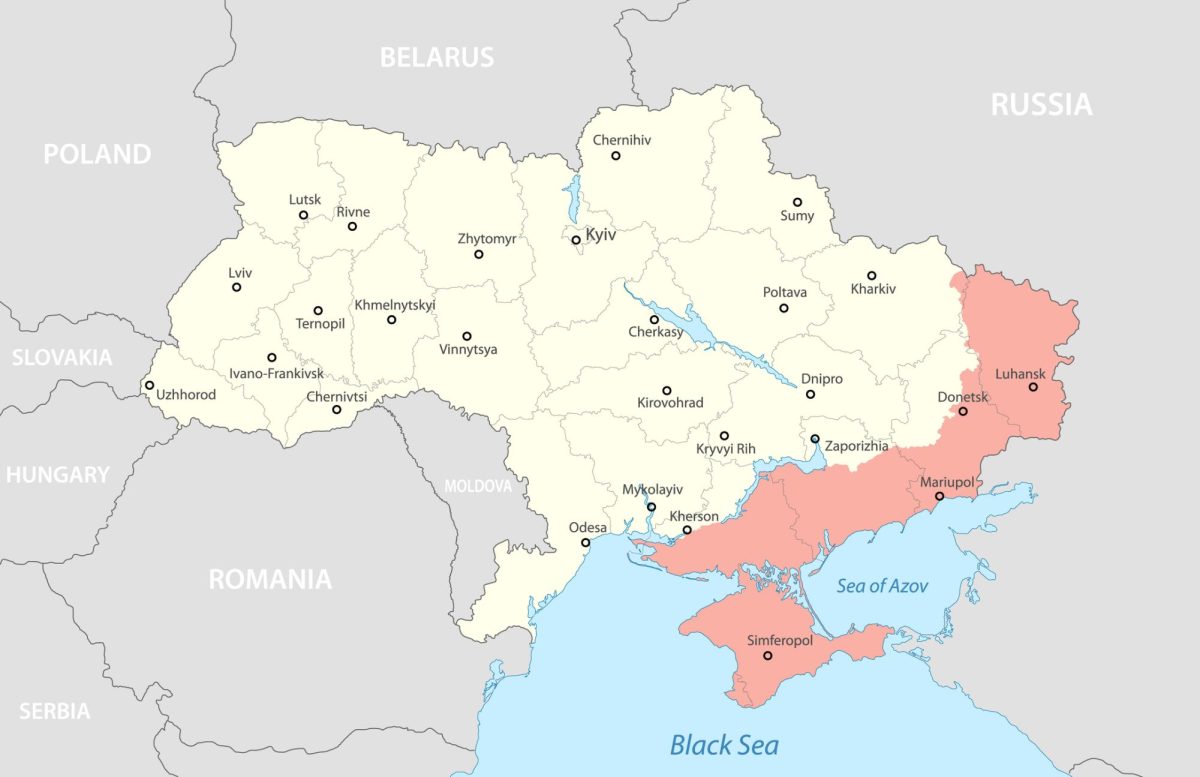In the late night of Sept. 26, Hurricane Helene made landfall on the Florida Gulf Coast, devastating the region with damages ranging in the hundreds of millions of dollars and fatalities reaching upwards of 227.
Only two weeks later, just as recovery efforts began to proceed, Florida was hit by another disaster: Hurricane Milton, a Category 3 storm with wind speeds recorded at a high of 180 miles per hour. Overnight, a state already reeling from one catastrophe, was hit by another while it was down. The financial cost of these combined catastrophes will be astronomical, the death toll crushing. All we can do is sit by and watch, helpless as our planet struggles for life.
The struggle to save Earth’s climate has been as hard-fought as it’s been dishearteningly long-winded, with early activism beginning 50 years ago, carried out by nonprofit organizations like Greenpeace and Friends of the Earth. But, while the excellent work done by groups like these should by no means be understated, little damage has been done to the ever-increasing speed of climate change.
In fact, scientists say things are only getting worse.
Since the 1850s, Earth’s global average temperature has increased by 2 degrees, according to the National Oceanic and Atmospheric Administration. To many of us who, in our daily lives, watch the temperature fluctuate between extremes of hot and cold, a two point increase might seem negligible, and yet the impact such a change has made on the environment is anything but.
Allison Michaelis, an assistant professor of meteorology at NIU, sees a disturbing trend emerging as a consequence of this seemingly small jump in global temperature.
“It’s the increase in extreme events, the frequency of the extreme events, depending on the type, the severity of the extreme events. I think for different areas of the country, in different areas of the world, there are different concerns. I’ll use California and the west of the U.S. as an example of having a lot wetter wet seasons, but a lot drier dry seasons, and that just exacerbates so many problems, especially regarding fires and floods and those kinds of things,” Michaelis said. “So I think just the increase in extremes and the increase in the volatility of our climate are most concerning.”
Droughts leech our soil of water, wildfires ravage our forests in infernos and storms like Helene and Milton wreak havoc where they collide with our cities. Sure, natural disasters like these have always been around, but those deceptively insignificant 2 degrees have not only increased their frequency, but also riled them up into a deadly fervor.
Why then, if climate change has so visibly and dramatically affected the world, has such little progress been made in slowing its ascent into hotter and hotter territory?
The answer lies in the pockets of politicians.
For all the good climate activists have done for the cause, their efforts have been consistently meant with one impenetrable wall: Congress. This is because real, worldwide climate action can only be accomplished by taking the trillion dollar fossil fuel industry to task.
In America, this industry generates hundreds of billions of dollars every year, making it one of the most lucrative businesses in the country. The profiteers of these corporations know all too well the consequences of their greed, but they will never stop drilling for oil or burning up coal; their machines will continue to crack open the Earth and harvest all that bleeds out.
They’ll doom the entire planet, curse the generations to come, all for their own luxury – the comfort of exploitation.
Assisting in this evil are the politicians who backdoor money from private donors, and even more blatantly accept large-dollar donations from fossil fuel lobbies. This is typically practiced by Republican politicians, with oil and gas companies having contributed around $25 million to the GOP during the ongoing 2024 election cycle.
Comparatively, similar companies only donated $3.6 million to the Democrats – still, a staggering number, especially considering the party’s hardline stance in support of climate action.
Contributions like these contain an open secret, an unspoken obligation between the politician and the lobbyist that the donation will be returned with a favor. In the case of fossil fuel lobbies, that favor most often involves blocking or slowing the progression of climate-related bills through Congress. Sometimes, it involves the spread of rumors and conjecture.
For instance, former President Donald Trump infamously called climate change a “hoax” and continues to perpetuate lies about the severity of the climate threat.
Of course, behind the scenes, Trump’s 2016 campaign was receiving millions in donations from fossil fuel lobbies. Eight years later, Trump is reportedly asking oil executives for $1 billion while downplaying the threat of climate change, deriding activists as “perennial prophets of doom.”
Some things never change.
As long as money-hungry corporations have their claws so deeply entrenched in the flesh of American politics, real climate action can never be accomplished. People like you or me can try our best to make a difference, but our efforts are little less than raindrops in an ocean when put up against the fossil fuel industry, actively erasing all that has been done.
Not until lobbying becomes more regulated, until large-dollar donations become prohibited, will we ever be free and uninhibited in our struggle for climate action, and that day is far away.
But that doesn’t mean we should give up hope. There is always time for hope, and Michaelis agrees.
“I think that there’s always time to course correct. I think it’s a very dangerous mindset to start thinking that there’s nothing we can do or it’s not going to affect me in my lifetime. We definitely still have time, but it has to be a coordinated effort,” Michaelis said.
Climate action is needed now more than ever, Hurricanes Helene and Milton are brutal reminders. Eventually, politicians will need to wake up from their delirium, stop focusing on their future and start focusing on ours.




















